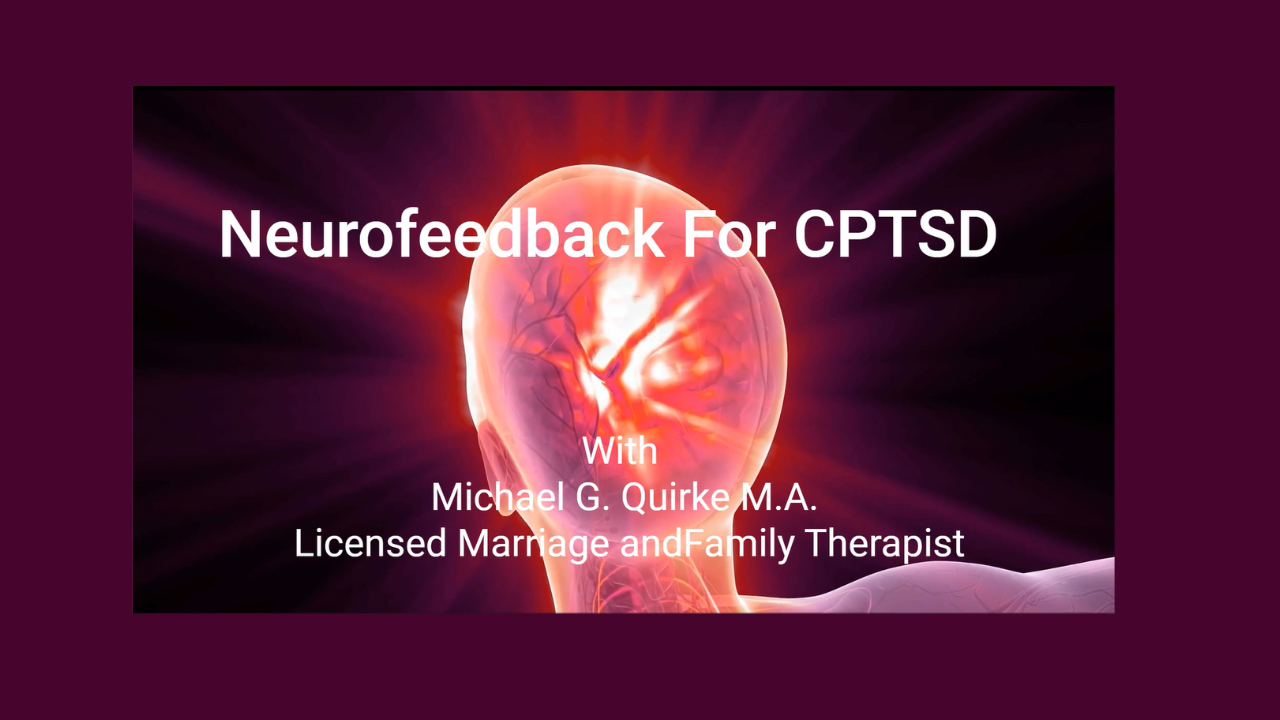Can Neurofeedback for Anger Management help you manage and reduce your outbursts? Let’s talk about it.
But first, you know what it’s like:
Your anger erupted and you lost your cool. It happened so quickly that you barely remember. In a flash, you went from having a pretty average day to raging with anger. Even if you had wanted to try to calm your anger in the moment, that wouldn’t have been possible. It was as if someone had flipped a switch—you were out of control.
After it was over, you felt so ashamed about what happened. You apologize profusely, but you knew that it wasn’t really enough. You’ll have to find a way to deal with your explosive anger.
But what? Is there any way to control your outbursts?
In fact, there is. Neurofeedback treatment has the potential to help with anger management and finally bring your outbursts under control.
How does that work?
 Understanding Neurofeedback Therapy For Anger Management
Understanding Neurofeedback Therapy For Anger Management
Neurofeedback was first pioneered by Herbert Jasper in 1941. It is a treatment method that allows you and your therapist to pay close attention to what your brain is telling you. This is done through a device called an electroencephalogram or EEG machine.
Sensors are attached to your head, which then connect to the EEG device. When fully connected, both you and your therapist observe your brain wave patterns as they appear on a readout. It’s actually really interesting to watch as this occurs in real-time!
The information gained from the EEG is critical, as it allows your therapist to analyze the current state of functioning of your neural network. But more than just examine your brain patterns, it’s also possible to retrain your brain with the help of neurofeedback therapy. And thus it becomes a great tool to help teach your brain new skills for managing anger.
How Training Your Brain Works
To train your brain neurofeedback therapy utilizes an approach that rewards your brain for making changes in thought patterns. This is done through two methods: conditioning and mirroring.
Conditioning means that when your brain has a positive reaction, it is in essence rewarded. This reinforces to your brain that it should continue with that same response again in the future.
Mirroring means that when your brain receives the reward, you can observe with the EEG readout. Your brain processes the images of that reward, which in turn reinforces the positive modification. Essentially, the EEG readout acts as a mirror for your brain.
Using Neurofeedback for Anger Management
We can use conditioning and mirroring together when practicing neurofeedback for anger management.
For instance, during a neurofeedback session, we coach your brain to respond differently when you begin to feel angry. Instead of an outburst, we remind your brain that you are alright. Or we use a mindfulness technique to help you remain calm.
Your brain responds positively to this coaching (conditioning) and you observe your brainwaves change on the screen (mirroring). Over time, this training helps shift your brainwave activity in a way that allows you to control your outbursts even outside of neurofeedback sessions.
Effectiveness of Neurofeedback
Does neurofeedback for anger management really work? Research indicates that it does.
For example, a paper published in the Journal of Neurotherapy found that neurofeedback helped with the treatment of chronic anger in two cases of brain injury. Another study that included 46 participants also found that neurofeedback helped people to better control their anger. And they had fewer outbursts too. This research was also published in the Journal of Neurotherapy.
—
If your outburst are affecting your life and your relationships and you’re looking for ways to calm your anger, then it’s time to try something different. Neurofeedback therapy for anger management can help. Instead of taking a pill or spending many hours just talking about your anger, neurofeedback gives you the power to actually do something about your outbursts. Working together, we can take advantage of your brain’s ability to change, adapt, and learn new ways of handling anger.
If you would like more information about how neurofeedback therapy could help you, please don’t hesitate to contact me.



